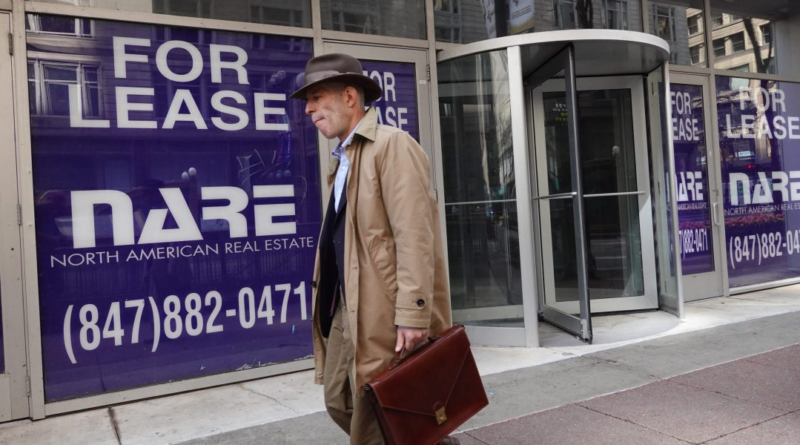Billionaire CEO sees $1 trillion in commercial real estate defaults coming for 'very, very ugly market' over next 2 years
Rising interest rates, the remote work trend, and the dominance of e-commerce sellers have combined to hammer the commercial real estate market over the past few years. Sky-high office and retail space vacancies are plaguing owners in this new environment, rents are plummeting, and borrowing costs have soared. As a result, U.S. commercial real estate prices have fallen 11% since the Federal Reserve began raising interest rates in March 2022, the IMF reported last week, the worst decline in over 50 years.
The outlook for the sector is now so bleak that Cantor Fitzgerald’s billionaire chairman and CEO Howard Lutnick is predicting between $700 billion to $1 trillion of defaults over the next two years unless interest rates fall quickly—and he sees that as unlikely.
“I think it’s going to be a very, very ugly market in owning real estate over the next 18 months, two years,” Lutnick told Fox Business last week, arguing that there’s going to be a “generational change” in real estate.
To his point, there’s an estimated $1.2 trillion in commercial real estate debt maturing by the end of 2025, according to the Mortgage Bankers Association, and 25% of that debt is in the hands of struggling office and retail space operators. With interest rates rising more than 5 percentage points in the past two years, that’s a recipe for defaults.
Lutnick, who is also the chairman and CEO at the brokerage and fintech company BGC Partners, warned that the Fed’s interest rate hikes are like a ”steamroller” that is hitting the real estate market and the economy.
As Fortune previously reported, some real estate experts fear that rising commercial real estate defaults could trigger a doom loop that impacts regional banks with the most exposure to the sector, and eventually the entire economy.
In its Jan. 18 report, the IMF detailed its own doom loop fears, warning that financial supervisors “must continue to be vigilant” in order to ensure that the commercial real estate sectors’ issues don’t become an economy-wide problem.
“Rising delinquencies and defaults in the sector could restrict lending and trigger a vicious cycle of tighter funding conditions, falling commercial property prices, and losses for financial intermediaries with adverse spillovers to the rest of the economy,” IMF economists explained.
Still, Lutnick said he believes the economy can cope with the issues in the commercial real estate market, however dire. Rising real estate defaults and higher interest rates will lead to a “slower economy” over the next few years, but they aren’t enough to cause a recession. “I think the economy will hang tough,” Lutnick said. ”I’m impressed with how it’s been hanging tough.”




